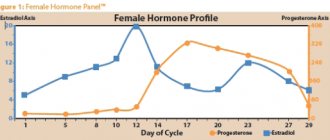Diet for diarrhea: how to help the intestines return to normal
Diet for diarrhea: how to help the intestines return to normal
Diarrhea (diarrhea) can accompany various conditions and diseases, but in most cases it goes away without treatment. A special diet will help solve this problem.
therapeutic diets, diarrhea
The causes of diarrhea can be a variety of conditions, and, as a rule, it is these that need to be treated. If stool disorder is accompanied by other symptoms: vomiting, fever, you should consult a doctor. In the absence of additional symptoms, adjusting your diet and eating habits may be sufficient to solve the problem. Doctors advise taking medications for diarrhea on your own only in emergency cases, when you cannot do without them.
Red, black, or discolored stools, as well as vomiting, bloating, pain, and fever can be signs of serious, life-threatening illnesses. In these cases, you should immediately call an ambulance.
What is diarrhea?
Diarrhea - frequent loose stools (more than 3 times a day). A distinctive feature is watery stool, which is more than 90% liquid.
Diarrhea is a syndrome, not a disease. It indicates that the body has a malfunction of the gastrointestinal tract. For various diseases, diarrhea syndrome has its own distinctive characteristics.
Causes of diarrhea
Diarrhea is a symptom of many diseases and pathological conditions of the gastrointestinal tract (GIT).
The most common cause of diarrhea is viral infections (rotaviruses, noroviruses, adenoviruses and others) or bacterial infections such as dysentery, salmonellosis and others.
But diarrhea can also develop under the influence of medications, for example, antibiotics and antiarrhythmic drugs. It may be the result of individual intolerance to a particular food product, the so-called food allergy. Diarrhea can be caused by errors in diet or abuse of fatty, heavy foods. It accompanies a number of chronic gastrointestinal diseases (gastritis, pancreatitis, ulcers) or is a manifestation of irritable bowel syndrome.
But it is important to know that if we are talking about adults, then most often their diarrhea is a consequence of poisoning with spoiled or low-quality products, the so-called foodborne toxic infection. Typically, food poisoning has a clear clinical picture: in addition to frequent loose stools, there is vomiting, weakness, and fever with high body temperature. It develops rapidly and lasts from 1 to 3 days.
Often, diarrhea in adults occurs during travel, especially if it is a trip to exotic countries. There is even a special term - traveler's diarrhea; up to 30% of all tourists visiting exotic countries suffer from it. Intestinal upset in this case is associated with changes in climatic conditions, adaptation to new water, food, spices, stress due to flight or lowered hygiene standards in a number of countries.
The importance of diet for diarrhea
Diarrhea is frequent bowel movements that are accompanied by loose stools. The danger of this disorder increases with its duration - prolonged or chronic diarrhea can cause vitamin deficiency, lack of micro- and macroelements, and anemia. Short-term diarrhea is dangerous due to dehydration and electrolyte imbalance.
The main causes of stool upset in healthy people are changes in water and food (so-called traveler's diarrhea), food poisoning, acute infectious diseases, and taking certain medications. Diarrhea can be a consequence of inflammatory processes, intestinal diseases, liver diseases, nervous disorders, metabolic disorders, hepatitis, etc.
Briefly about pathology
Diarrhea is a pathological condition characterized by an increase in watery stool.
Often this disorder is accompanied by an increased urge to defecate. A similar problem arises due to disruption of the small intestine, accompanied by the release of a large amount of exudate and increased peristalsis.
Diarrhea is a symptom, not an independent disease. It occurs in response to poisoning, bacterial infection, parasitic invasion, inflammatory process of autoimmune or endocrine etiology, etc.
It is believed that diarrhea is a manifestation of the body's defense mechanisms.
It helps to quickly cleanse the intestines and remove toxins. At the same time, loose stools are dangerous because... leads to loss of fluid and beneficial microelements. Depending on the etiology, diarrhea can occur in both acute and chronic forms.
Possible causes of diarrhea.
Acute form
The acute form is diagnosed when diarrhea persists for no more than 5-7 days.
Common causes of the problem include:
- drinking unboiled water;
- binge eating;
- allergic reactions to certain types of food and medications;
- intestinal and viral infections;
- poisoning;
- parasitic infestations;
- severe stress;
- consumption of poorly combined foods, etc.
After allergens and toxins are removed from the body, the condition quickly stabilizes.
In addition, acute diarrhea occurs when eating food high in mineral salts. In this case, water from the blood returns to the intestines. Diarrhea in this case helps to quickly eliminate excess salts and prevent tissue damage.
Chronic form
With this form, attacks of diarrhea occur at least 3-5 times a month.
Some patients experience loose stools and frequent urge to defecate all the time. Periods of remission are short-term. Chronic diarrhea often accompanies the following diseases:
- irritable bowel syndrome;
- rectal cancer;
- ulcerative colitis;
- Crohn's disease;
- malabsorption syndrome, etc.
Sample menu
With diet No. 4, an approximate menu for 1 day could be as follows:
- Breakfast: oatmeal with raisins on water - 150 ml, sandwich of dried bread and low-fat cheese - 1 piece, jelly - 1 tbsp.
- Lunch: dry cookies - 50 g, dried fruit compote - 1 tbsp.
- Lunch: pike perch soup with croutons, steamed meatballs - 3 pcs., zucchini game - 50 g, jelly - 1 pc.
- Afternoon snack: fruit and berry jelly - 100 g.
- Dinner: mashed potatoes - 100 g, steamed cutlets - 2 pcs., dried bread - 2 slices, rice water - 1 tbsp.
- Second dinner: kefir - 1 tbsp.
What is table number 4?
The main task of a diet for diarrhea is to provide the body with nutrients while simultaneously reducing the load on the gastrointestinal tract. The digestion process in this disorder is disrupted, the speed of food passage is increased, so you should exclude from the diet everything that can irritate or increase the functioning of the gastrointestinal tract. It is important to prevent the development of inflammation, fermentation and putrefactive processes and help the intestines restore normal functioning. The official name of the diet for diarrhea is table No. 4.
How to avoid complications of diarrhea
Against the background of chronic diarrhea, the development of hypovitaminosis, which occurs due to the removal of vitamins and minerals from the body, is often observed. To compensate for the resulting deficiency, you need to include heat-treated vegetables and fruits in your diet.
In some cases, you should take multivitamins. To prevent dehydration, you need to drink as much fluid as possible.
To prevent exhaustion, you should adhere to a gentle diet. The recommended dishes will not create an increased load on the digestive organs, so the beneficial substances from food will be absorbed.
Principles of diet for diarrhea
- reduced amount of fats and carbohydrates with a normal amount of proteins;
- exclusion of foods that stimulate the secretion of the digestive organs;
- exclusion of foods that cause fermentation and rotting in the intestines;
- semi-liquid or pureed warm food;
- plenty of fluid (up to 2 liters per day);
- fractional meals;
- calorie intake reduced to 1800–1900 kcal per day.
The University of Bristol has developed the so-called Bristol Stool Scale (a table for determining its condition). According to this table, there are 7 types of stool, the last 2 are considered diarrhea.
Diarrhea
Vomit
Gastritis
Pancreatitis
Jaundice
Diabetes
19365 07 June
IMPORTANT!
The information in this section cannot be used for self-diagnosis and self-treatment.
In case of pain or other exacerbation of the disease, diagnostic tests should be prescribed only by the attending physician. To make a diagnosis and properly prescribe treatment, you should contact your doctor. Diarrhea: causes of occurrence, what diseases it occurs with, diagnosis and treatment methods.
Definition
Diarrhea is defined as loose or loose stools three or more times a day, producing more than 200 ml of liquid stool. However, frequent stools are not considered diarrhea. Unformed, loose stools in newborns and breastfed children are also normal.
Diarrhea, or diarrhea, occurs due to impaired absorption of water in the intestines. Significant loss of fluid can lead to dehydration, and the removal of large amounts of electrolytes (potassium, sodium, chlorine ions) can disrupt the normal course of intra- and intercellular processes. According to the World Health Organization, acute diarrhea causes more than 2 million deaths per year.
Types of diarrhea
According to the clinical course:
- acute diarrhea - lasts up to 4 weeks, caused by bacterial, parasitic or viral infectious diseases of the intestine;
- chronic diarrhea - lasts more than 4 weeks, and its cause is pathological conditions of the gastrointestinal tract.
Separately, there is “travelers' diarrhea” - a clinical syndrome that develops in people traveling to other countries and climatic zones.
It usually lasts no more than 7 days. By pathogenesis:
- secretory diarrhea (profuse watery stool more than 1 l/day);
- osmolar diarrhea (copious stool (polyfecal matter) with a large amount of semi-digested food residue (steatorrhea));
- hyper- and hypokinetic diarrhea (liquid or mushy stool);
- exudative diarrhea (loose, loose stools with mucus and/or blood).
Possible causes of diarrhea
Diarrhea can be caused by food poisoning, eating stale or incompatible foods, alcohol, too much coffee, too fatty or spicy foods.
Diarrhea is usually a symptom of an infection in the gastrointestinal tract, which can be caused by a variety of bacteria, viruses and parasites. The infection spreads through contaminated food, drinking water or from person to person as a result of poor hygiene. The patient experiences symptoms of intoxication: fever, chills, body aches, general malaise, lack of appetite, nausea, vomiting. High fever is more characteristic of invasive infections that cause an inflammatory response. With severe inflammation in the intestines, erosions and ulcers develop and, as a result, bloody diarrhea.
In addition, diarrhea can be caused by various diseases and pathological conditions:
- lack of pancreatic enzymes, chronic pancreatitis;
- neoplasms of the pancreas, adrenal glands or intestines;
- ischemia of the small and large intestine;
- irritable bowel syndrome;
- intestinal dysbiosis;
- resection of the stomach or intestine with the formation of a blind loop or short small intestine;
- congenital disorders of the absorption process;
- obstructive jaundice of any nature;
- diseases of the thyroid gland (hyperthyroidism, thyrotoxicosis);
- diabetes;
- radiation exposure;
- taking certain medications (laxatives, antibiotics, antacids, etc.);
- neurogenic disorders.
Diarrhea is often included in the symptom complex of the following syndromes:
- syndromes of acute gastritis and rhitis are characteristic of salmonellosis, bacterial food poisoning, intestinal yersiniosis (pseudotuberculosis);
- acute enteritis syndrome is typical for cholera, viral diarrhea, coli infection caused by Escherichia coli, intestinal yersiniosis;
- acute colitis syndrome develops with dysentery, coli infection, amebiasis (amebic dysentery);
- acute rocolitis syndrome is characteristic of salmonellosis, intestinal yersiniosis, campylobacteriosis;
- profuse diarrhea with a significant admixture of blood may indicate the onset of the development of ulcerative colitis, Crohn's disease;
- acute infectious diseases of viral etiology (rotavirus, norovirus, adenovirus, coronavirus) occur with symptoms of intoxication and primary damage to several parts of the gastrointestinal tract (stomach, small and large intestine) and with the development of enterocolitis and rocolitis syndromes.
Involvement of the stomach and small intestine in the pathological process may be accompanied by severe dehydration and electrolyte disturbances due to fluid loss.
During diarrhea, water and electrolytes (sodium, chlorine, potassium and bicarbonate) are eliminated from the body through loose stools, vomit, sweat and urine. Chronic diarrhea often causes vitamin and mineral deficiencies, which can lead to the development of anemia. Diarrhea in a child is especially dangerous, as it is fraught with very rapid development of dehydration, tachycardia, drop in blood pressure and shock.
Which doctors should you contact if you have diarrhea
? If you have diarrhea, you should contact your general practitioner or. The doctor will prescribe the necessary examination and determine the cause of the disease. Often, consultation with an infectious disease specialist is required to make a correct diagnosis.
Diagnostics and examinations for diarrhea
The diagnostic algorithm for acute diarrhea involves determining its cause, identifying an inflammatory or other etiological factor, and verifying the disease.
Diagnostic difficulties rarely arise only when diarrhea becomes the first manifestation of a systemic disease or dominates the clinical picture.
Along with a physical examination (measuring weight, temperature, heart rate and blood pressure), a proctological examination is performed.
The nature of the stool is determined by the location of the intestinal lesion (small or large intestine). Depending on the color and consistency of the stool, the cause of diarrhea can be assumed:
- Yellow diarrhea - occurs as a result of increased intestinal peristalsis (stool moves quickly and is not fully formed), may be accompanied by pain and heaviness in the abdomen.
- Liquid green stool is recorded in viral and bacterial infectious diseases. The color of stool is explained by the active increase in the number of pathogens and the accumulation of leukocytes. May be accompanied by frequent vomiting and abdominal pain.
- Diarrhea with blood occurs due to gastrointestinal bleeding. If the upper parts of the digestive system are affected, the stool turns black. Stool with scarlet blood indicates bleeding from the rectum.
- White, loose stools occur when there are tumors or stones in the body that compress the bile duct. This condition is also accompanied by darkening of the urine and yellowing of the skin.
- Water diarrhea occurs in cholera. In this case, bowel movements are very frequent, and there is a high risk of rapid dehydration.
Laboratory examination methods:
- ;
- ;
- general urine analysis;
Gentle mode
With diarrhea, it is necessary to provide the patient’s body with energy, but this must be done carefully. Preference should be given to easily digestible foods: boiled, steamed and then pureed. Steamed cutlets, quenelles, soufflés made from tender lean meat or fish are the best source of protein. Slimy cereal soups with low-fat light broth are recommended. Porridges made from rice, oatmeal, or buckwheat must be wiped before use.
Allowed are soft-boiled eggs or in the form of a steamed omelet, fresh unleavened cottage cheese, pureed baked apples, jelly made from fruits and berries that have a fixing effect (pear, blueberry, dogwood, quince). The only fat allowed is butter – it can be added little by little to prepared dishes.
For diarrhea, it is useful to eat yesterday's wheat bread and wheat crackers - they have adsorbent properties. Other baked goods are excluded.
Prohibitions and restrictions
All foods that, due to their chemical or physical (mechanical, temperature) properties, can irritate the gastrointestinal tract should be excluded from the diet. That is why everything hot and cold, fatty, spicy, salty, sweet is prohibited.
The consumption of smoked meats, marinades and other canned food, confectionery, milk, coffee with milk, cocoa, and carbonated drinks is strictly prohibited. For a while you will have to give up fatty meats and fish, as well as caviar and sausage. There is a separate taboo on alcohol - alcoholic drinks increase dehydration of the body.
It is not allowed to eat fresh fruits - their dietary fiber is too coarse for an irritated gastrointestinal tract. For the same reason, vegetables are prohibited - only a little light vegetable decoction can be added to dishes. Legumes are also not recommended, as they can cause gas.
What can cause diarrhea?
Most often, diarrhea is caused by pathogenic microorganisms entering the digestive tract. This is the case when diarrhea is called “the disease of dirty hands.”
In more severe cases, diarrhea is an acute intestinal infection with the risk of epidemics. Diarrhea is caused by cholera, dysentery, typhoid fever and some others.
Cholera is a particularly interesting option. Typically, any disease is characterized by the presence of inflammation in any organ, and, as a result, dysfunction of this organ. In the case of cholera, there is no inflammation, and the organ - the intestines in this case - functions just fine! What happens with cholera?
Vibrio cholerae, entering the digestive tract with contaminated food, enters the small intestine. It does not penetrate into cells. The microorganism simply attaches to the intestinal villi and releases cholerotoxin. This, in turn, activates the enzyme adenylate cyclase, and triggers intestinal secretion. Please note that all these processes are completely normal and physiological, operating normally and in a healthy state. It’s just that in the case of cholera, the process acquires such a catastrophic intensity that the patient begins to lose liters of fluid, which leaves the body through diarrhea and vomiting. As a result, the body becomes dehydrated, hypovolemic shock occurs (lack of blood in the vessels), and death. Cholera is one of the so-called especially dangerous quarantine infections, and, thank God, it practically does not occur in civilized countries.
There are also non-infectious causes of diarrhea. Perhaps some people know the expression “bear disease”? When intense involuntary bowel movements are caused by severe nervous tension. Of course, it’s difficult to meet a bear alive now, but the “bear” can sit inside. If a person is overwhelmed by chronic stress, has elevated levels of anxiety, or even has depressive disorders, then he is likely to develop “irritable bowel syndrome,” which provokes diarrhea. Disease "from nerves".
In conclusion, let us mention diarrhea caused by chronic autoimmune diseases such as Crohn's disease and ulcerative colitis. Treatment of these serious diseases is at the intersection of gastroenterology and rheumatology.










